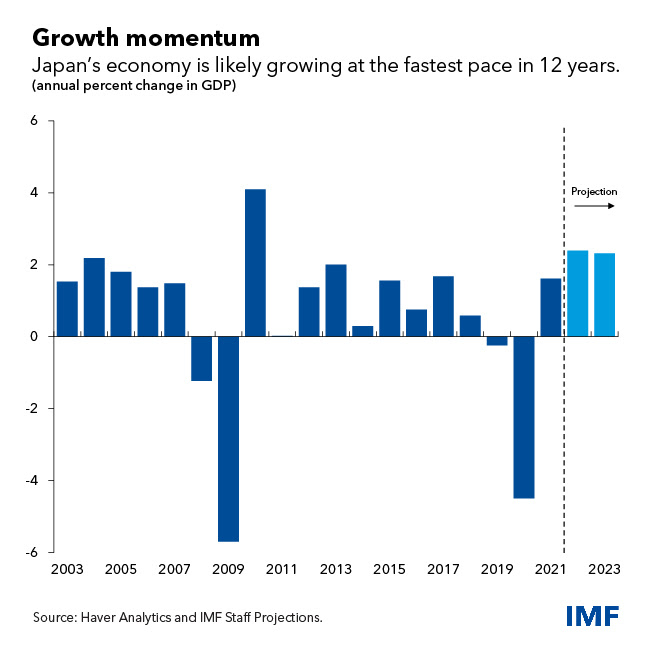Japan will have to embrace digitalisation more robustly if it is to escape its pandemic-induced economic doldrums, the International Monetary Fund has warned.
The country’s lack of advanced technology was underscored by how many employers struggled to make the shift to remote work when the pandemic began, “reducing economic output and sapping productivity at a crucial time”.
Digitalisation could provide additional growth momentum, IMF economists Piyaporn Sodsriwiboon, Purva Khera and Rui Xu wrote in their report.
“The pandemic underscored Japan’s uneven embrace of technology,” they wrote.
“Even though it’s one of the world’s biggest users of industrial robots and home to a major electronics industry, it still lags other economies in adoption of digitalisation by businesses.”
They noted the continued reliance on legacy information technology systems and reliance on paper-based procedures.
That hindered government responses to the outbreak, delaying the 2020 emergency cash programme that aided consumers. Adoption of cashless payments and e-commerce have also lagged.
The IMF acknowledged that the Japanese economy is recovering from the pandemic as related uncertainty and supply constraints subside and consumption gradually rebounds.
Growth will accelerate to 2.4% this year, the fastest in 12 years, and maintain nearly the same pace next year, according to IMF projections in April.
“Our recent assessment of the world’s third-largest economy credits strong policy support and high vaccination levels,” the report noted. “Pent-up consumer demand will help support the expansion.”
However, the war in Ukraine and lingering pandemic effects pose “substantial risks” to the near-term outlook, they said.
The economy also faces longer-term headwinds from an ageing and shrinking population, stagnant productivity growth and major climate change risks.
“Our study shows that scaling up digital investment, along with full implementation of growth-enhancing reforms that increase labour supply and productivity, could boost gross domestic product,” they wrote.
- George Russell
READ MORE:
Japan’s Mazda Pledges Carbon Neutral Factories by 2035
Taiwan Tech Firms Step Up Cooperation in Japan – Nikkei
Japan’s Toshiba Seeks Fresh Blood With Board Nominees























